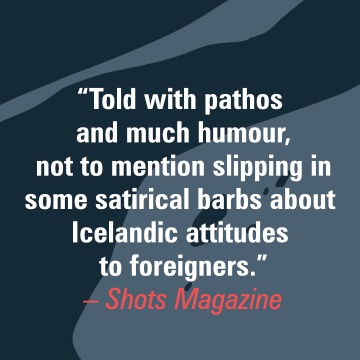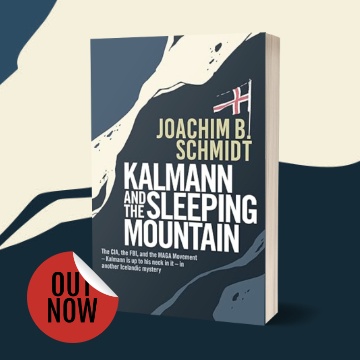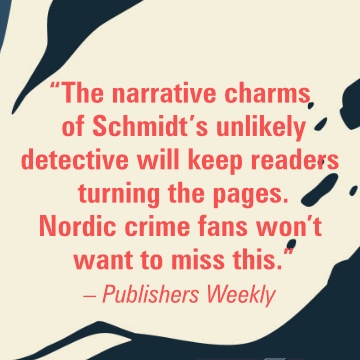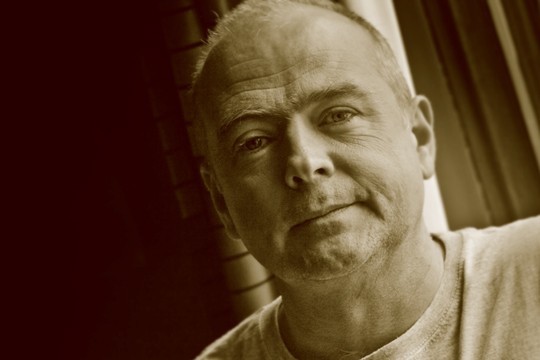
 Barry Gornell’s debut The Healing of Luther Grove was one of the finds of the year for me, a claustrophobic, character-driven psychological thriller written with an assurance rare in first novels. So I wanted to find out more about the man behind the work. Liverpool born, now resident on the west coast of Scotland, Barry is a screenwriter and novelist, graduate of The University of Glasgow’s Creative Writing Masters, and recipient of the Scottish Book Trust‘s New Writer Award. Barry was kind enough to join us a bit of a chat…
Barry Gornell’s debut The Healing of Luther Grove was one of the finds of the year for me, a claustrophobic, character-driven psychological thriller written with an assurance rare in first novels. So I wanted to find out more about the man behind the work. Liverpool born, now resident on the west coast of Scotland, Barry is a screenwriter and novelist, graduate of The University of Glasgow’s Creative Writing Masters, and recipient of the Scottish Book Trust‘s New Writer Award. Barry was kind enough to join us a bit of a chat…
Tell us about The Healing of Luther Grove…
It has been described, a wee bit facetiously, as Grand Designs meets Straw Dogs. I think this misses the overall sense of repair. Lost and damaged souls are changed, even rescued, under extreme and extraordinary circumstances that none could predict. It’s about one weekend of irreversible change in characters’ lives. Nobody ends up in the same place. Although claustrophobic, brooding, sinister, tender, sweet, sad and violent, I believe it is ultimately redemptive.
What prompted you to start a novel?
I’ve been writing, mostly screenplays, for a good while now. Various complications, some creative some political, prompted the move to prose. After a few years of short stories and the course at Glasgow University I felt I had the confidence to attempt the first novel. I don’t see it as an exclusive shift. I’m still working on screenplay ideas alongside the next novel.
Where did the initial idea come from?
From an argument I had with a neighbour when I lived in the Highlands over a decade ago. The initial argument Luther has with John Payne is pretty close to what happened. It became the jumping off point for the questions that led to the answers that became the story.
It’s a classic trope, the interloper in Paradise. What do you think keeps drawing writers back to it?
Conflict and reappraisal. The Paynes (in their present state) believe it’s a paradise Luther knows it not to be. Discovering the truth is the story.
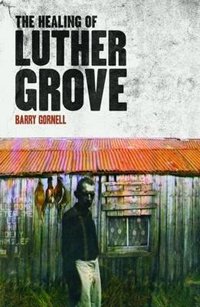 Despite being set in the Highlands the book has a rather Mittel-European, fairytale quality to it. What are your literary inspirations?
Despite being set in the Highlands the book has a rather Mittel-European, fairytale quality to it. What are your literary inspirations?
The fact that the move to the Highlands is John and Laura’s fairytale solution to a problem obviously suggests certain images but I didn’t consciously return to Grimm’s tales or any updates. We’re steeped in them, they come out. It was good they did. Coincidentally, the question brings to mind two recent books I’ve found inspirational. They were Russell Hoban’s Soonchild and Denis Johnson’s Train Dreams. They’re both, in their own very different way, fairy tales. Soonchild is good fun. Train Dreams is utterly haunting and unshakeable.
Other voices I’m inspired by are Daniel Woodrell, George Mackay Brown, Tove Jansonn, Cormac McCarthy, Alistair Macleod, Carson McCullers, Alan Garner, Kinky Friedman and Robin Jenkins.
Cinema, particularly the Western, had a lot to do with The Healing of Luther Grove. As did some of Edward Hopper’s paintings, the Scottish landscape and country music.
Luther Grove is an enigmatic character, how did you go about getting into his psyche?
This is connected to your earlier. I lived with him for 10 years. It was my first decade as a dad. The black fears of a parent’s dream, the dread that comes with the hope; I shared these with Luther. The book is shot through with it. He probably had less fun getting to know me than I did getting to know him. We both aged. I couldn’t have done him or the book justice without the experiences I’ve got under my belt. It’s depth rather than wisdom. He is also a classic outsider, the character able to do that which members of civilised society can’t, an outlaw. I like a good outlaw.
Your work is very character-driven, is this a result of your writing process or a stylistic choice?
It’s how I tell the story. They come before any plot. Characters are the why of happening, rather than the what of happening.
You’re a graduate of Glasgow University’s well-regarded creative writing course, what did you take from the experience?
You take what you put in. That’s not meant to sound flippant. As I’ve said elsewhere, the fee hopefully, though not necessarily, puts you in the room with like-minded people. There isn’t a magic lecture, module or tutorial where the secrets are revealed. It is hard work involving an amount of bravery and trust with people who start off as strangers. The more you invest in them the more they will reciprocate and the more you will gradually come to understand. That was my experience with group C. I feel we helped each other see what worked and didn’t work in our writing without losing our individual voices.
The Healing of Luther Grove has received glowing praise from your fellow authors, who are you excited by in the crime genre right now?
The Killing III.
Also, in one review, Doug Johnstone referenced Donald Ray Pollock, a new name to me. I checked him out and ordered his two books. I’m excited about them.
The praise has been both humbling and reassuring.
What’s coming up next from you?
A thriller about a school disaster and what happens to the town when the wrong child survives. An 18th century supernatural crime book for early teens. A screenplay for The Healing of Luther Grove.






